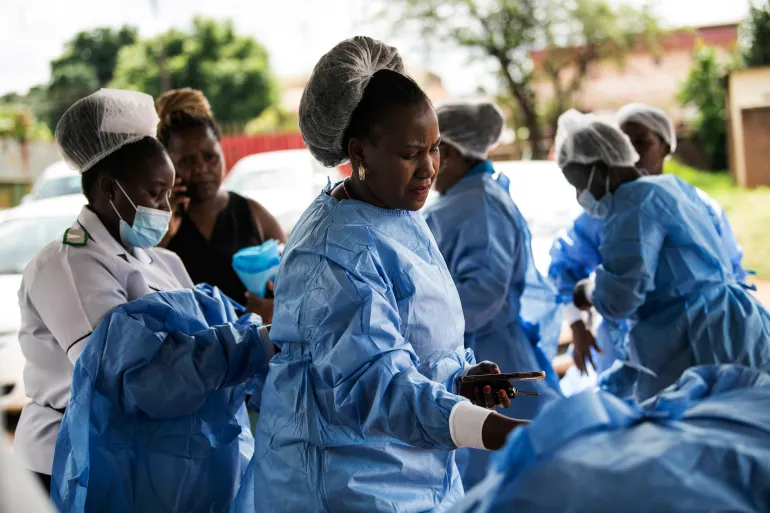Professor Samuel Kaba Akoriyea, the Acting Director General, Ghana Health Service (GHS), has urged the public to revert to the COVID-19 safety protocols to avert the cholera outbreak in the country.
He said the hand washing practice, the use of sanitizer and improvement of sanitation conditions would help prevent the spread of the disease, however, the act of Ghanaians giving up on the protocols, had led to the outbreak.
Prof Akoriyea gave the advice when Tobinco Pharmaceutical Limited donated medical consumables to the Ghana Health Service to aid cholera and meningitis treatment.
It was, thus, important for all to intensify hand washing practices and ensure a clean environment as part of measures to prevent cholera, he added.
He said: “The most important thing will be cleanliness. We want people to clean their environment, wash their hands before they take any food, and concentrate more on water and sanitation.
“Once we are able to do that, we will be able to reduce the cases dramatically. Because for almost a year or two during the peak of COVID-19, Ghana did not record any cholera outbreak.”
“So, let’s keep ourselves clean. Let’s keep our environment clean. Let’s wash our hands before we eat,” Prof Akoriyea added.
He said the COVID-19 pandemic in Ghana was brought under control due to hand washing and adherence to the safety protocols, hence going back to the measures would help to curb the menace.
Prof Akoriyea assured the public that the cholera situation, as well the Cerebrospinal Meningitis, were under control, without any cholera deaths being recorded in the past few weeks.
There were a few suspected cases, which had been taken to the laboratory for confirmation, he said, and stressed the need for strict hand washing practices.
Prof. Akoriyea said the COVID-19 pandemic in Ghana was brought under control due to hand washing and other safety protocols, hence an improvement in the protocols would help to curb the menace.
Cholera is an acute diarrheal infection caused by ingesting food or water contaminated with the bacterium Vibrio cholerae.
The World Health Organisation says cholera remains a global threat to public health and serves as an indicator of inequity and a lack of social development.
Symptoms include frequent diarrhea, vomiting, and dehydration, along with abdominal cramps, fever, headache, fatigue, dry mouth and throat, and decreased urine output.
Medical experts warn that cases of the disease can be fatal within hours if left untreated. Most individuals infected with cholera may not exhibit symptoms, but the bacteria can still be present in their faeces for one to 10 days post-infection, potentially contaminating the environment and infecting others.
A minority of patients develop acute watery diarrhea with severe dehydration. This can lead to death if left untreated.
Cholera transmission is closely linked to inadequate access to clean water and sanitation facilities. Typical at-risk areas include peri-urban slums and camps for internally displaced persons.
Early detection and treatment are crucial to preventing complications and reducing mortality.



